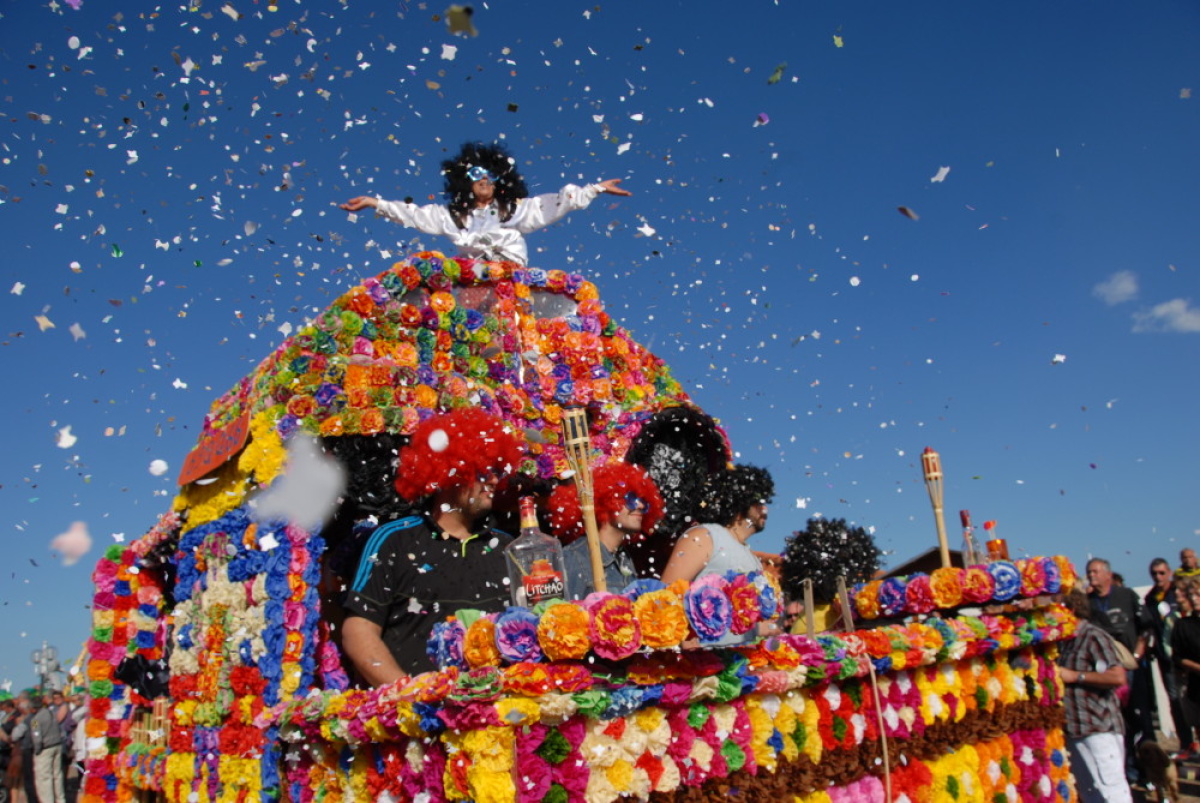Celebrating Spring, it’s Carnaval
Carnival (carnaval) is an ancient tradition linked to seasonal and agricultural cycles. Before the times of greenhouses and supermarkets, the harsh, dark winter months posed a serious threat to many families.
The arrival of spring, then, heralded new life across the plant and animal kingdoms, signaling an easier existence for us humans too. More than enough cause for celebration.
Over the centuries, the festival was adopted by various different civilisations.
In ancient Greek mythology, Dionysos is the god of the grape-harvest and wine making (our favourite!). Worshipping Dionysos meant wild wine consumption was not only authorised, but strictly encouraged! Usually celebrated around the spring equinox, it was the perfect excuse for the Greeks to let their hair down.
Later, the Romans celebrated Lupercalia to ward off evil spirits and cleanse the city, promoting health and fertility. The 15th day of the second month was known as purified day, or “dies Februates”… hence February!
When Rome embraced Christianity, the early Church decided it might be better to keep certain aspects of pagan rituals already practiced, rather than risk a riot by attempting to abolish them altogether.
Following the religious fervour of Christmas and Epiphany, this spring festival was a final knees up before the serious business of Lent put paid to the partying.
There are different schools of thought on the etymology of carnaval.
Because Catholics are not supposed to eat meat during Lent, some believe they called their festival carnevale, “farewell to meat.” Others argue that ‘carrus navels’ the ‘naval car’ or ship, which carried the Gods to the winter feasts is the early inspiration for the carnival float.
Either way, as time passed, carnevale in Italy became quite famous; and the practice soon spread to France, Spain, and other Catholic countries in Europe. As the French, Spanish, and Portuguese moved to the Americas and other parts of the world, they took with them their tradition of celebrating carnival.

Whatever the reason, the carnaval tradition is alive and well in the P-O, with loads of events brightening up the towns and villages over February and March. If you hear of any that aren’t on our list please let us know laura@anglophone-direct.com
March
Saturday 1stAmélie les BainsCéret
(kids)
Le Barcarès, 3pm, Mas, de l’Ille
Le Boulou, 3pm, Complese Echards
Osséja, 2pm, place Saint Paul
Vingrau, 6pm, Salle des Fêtes
Sunday 2nd
Amélie les Bains
Argelès sur Mer
Céret
Pollestres, 3pm, Salle Jordi Barre
Friday 7th
Rivesaltes, 8pm, Domaine de Rombeau
Saturday 8th
Sunday 9th
Palau del Vidre, 2pm, Foyer François Tané
Saturday 15th
Argelès sur Mer
Maureillas las Illas, 10am, village
Sunday 16th
Arles sur Tech, 3pm, village
Torreilles, 4pm; Parc du Jumelage
Wednesday 19th
Toulouges, 2.30pm, Place Esparre
Saturday 29th
Banyuls sur Mer, 2.30pm, avenue de la République
April
Sunday 6th
Alénya, 11am, town centre
Saint Féliu d’Avall, 2.30pm, village centre

I’m presuming the dates are April 2nd and 3rd, not March?
Well spotted, Nick, thank you! We thought about passing it off as a poisson d’avril 😉 !